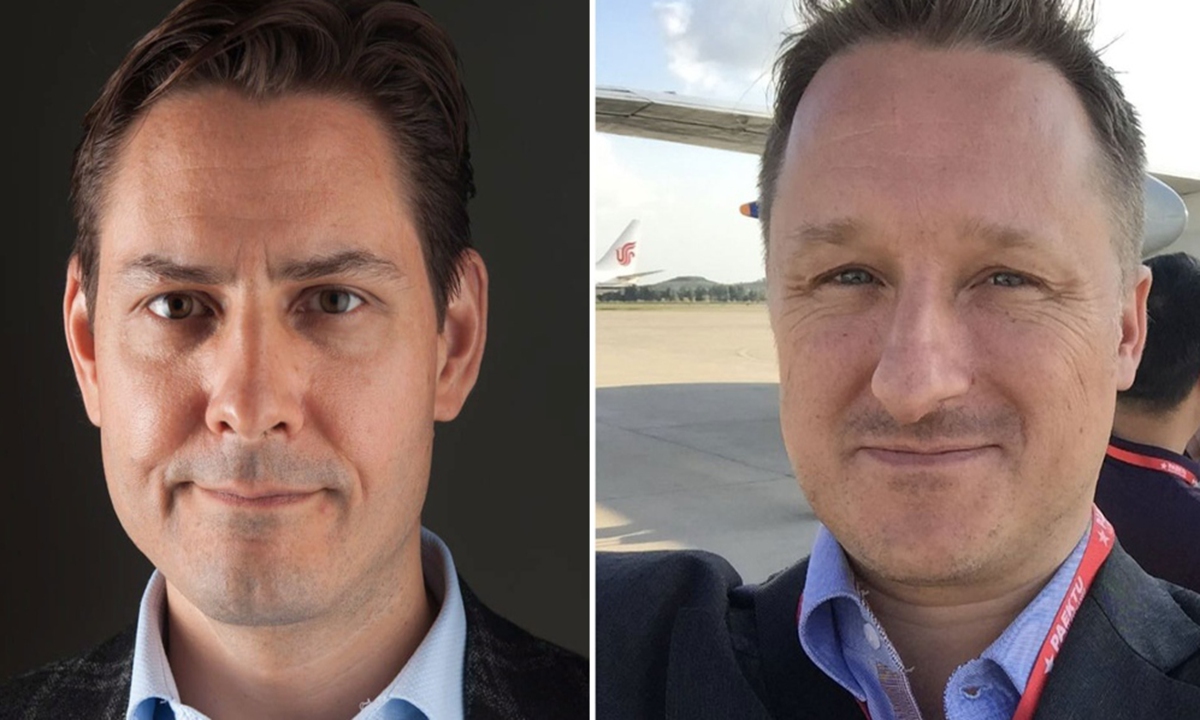2 Canadians prosecuted in China for spying with ‘abundant evidence’
By Zhao Yusha and Liu Xin Source:Global Times Published: 2020/6/19 12:57:57

Photo: Former Canadian diplomat Michael Kovrig and Michael Spavor (right)
On Friday, two Canadian nationals, former diplomat Michael John Kovrig, and his intelligence contact Michael Peter Todd Spavor, were prosecuted by the procuratorates in Beijing and Dandong, Northeast China’s Liaoning Province, respectively, for spying on China’s national secrets and collecting classified intelligence.
According to the press release from the Supreme People’s Procuratorate, the Second People’s Procuratorate of Beijing Municipality started the procuration of Kovrig for spying on national secrets and collecting classified intelligence, while Spavor was charged for spying and illegally offering secrets.
The two were investigated in December 2018 for activities undermining China’s national security.
Chinese authorities said in March 2019 that Kovrig had frequently traveled to China since 2017 with a regular passport and business visa. However, they confirmed that Kovrig had spied on and stolen sensitive information and intelligence through contacts in China.
Li Haidong, a professor at the Institute of International Relations of the China Foreign Affairs University, told the Global Times that prosecution against the two Canadians aligns with the country’s legal procedure, as there is abundant evidence to prove their crime.
Li said that any move to politicize the two cases, or linking the cases with that of Meng Wanzhou, is confusing right with wrong, and is a baseless accusation, as the two foreign nationals are suspected of committing crimes that jeopardizes China’s national security, whilst Meng is clean and a victim of other countries’ conspiracy theories against China.
Canada should think twice about colluding with others to sabotage China’s interest, said Li, warning that blindly following other countries damages Canada’s own independence and interests.